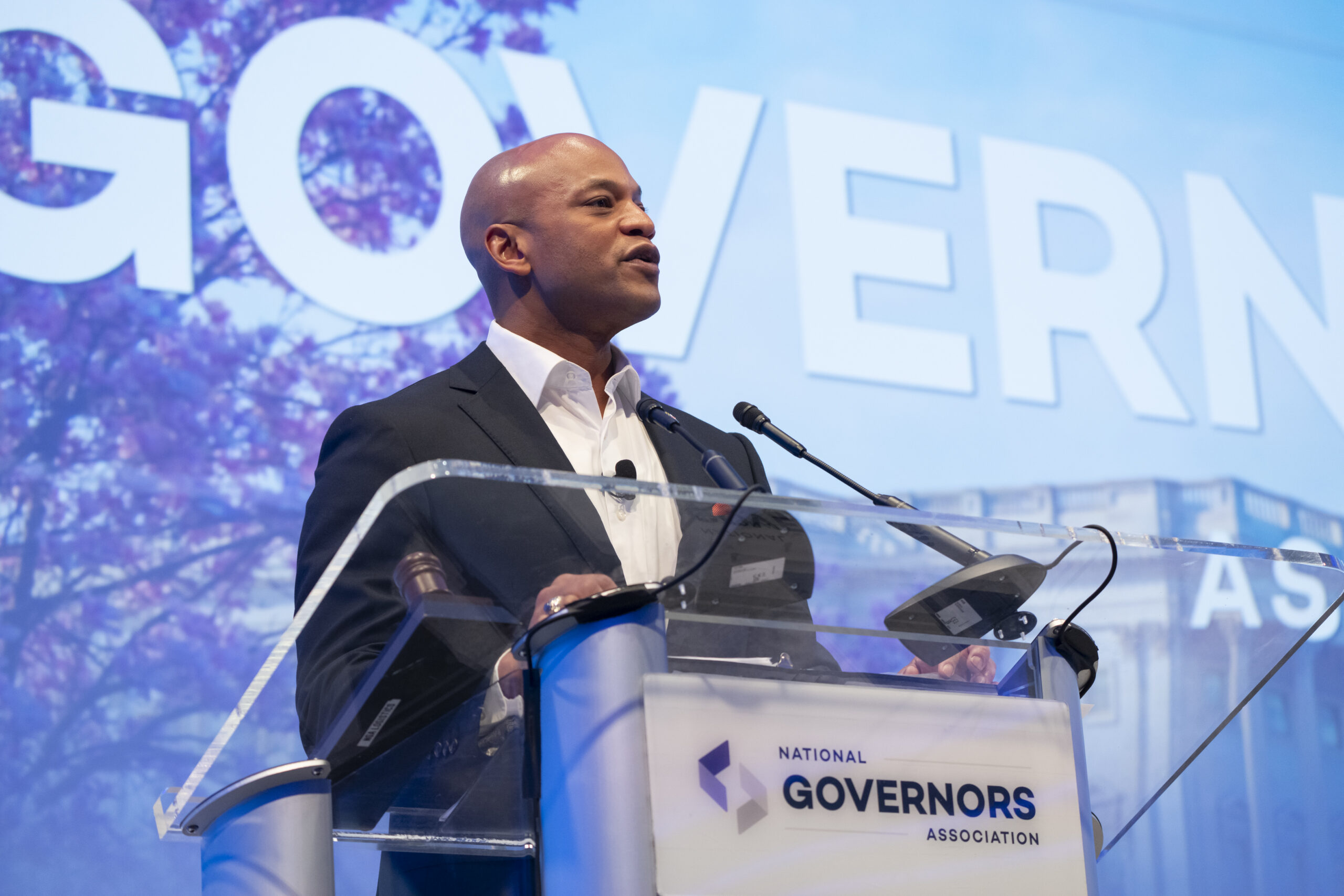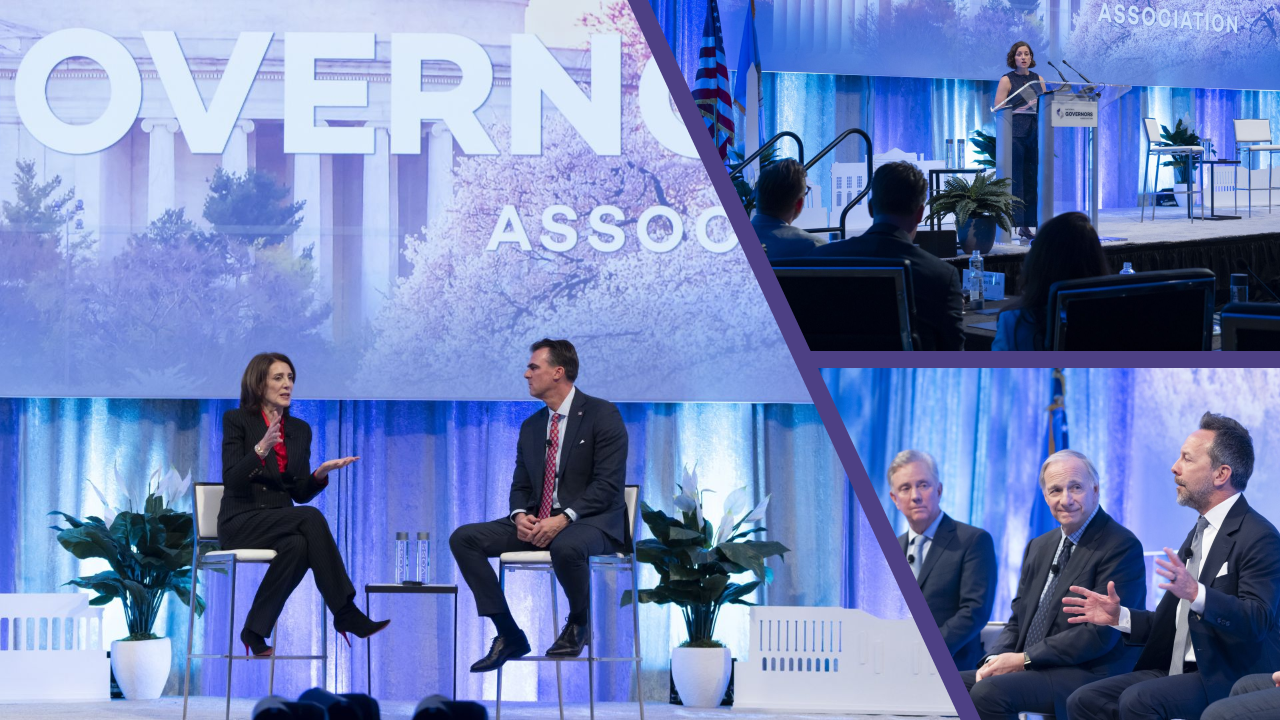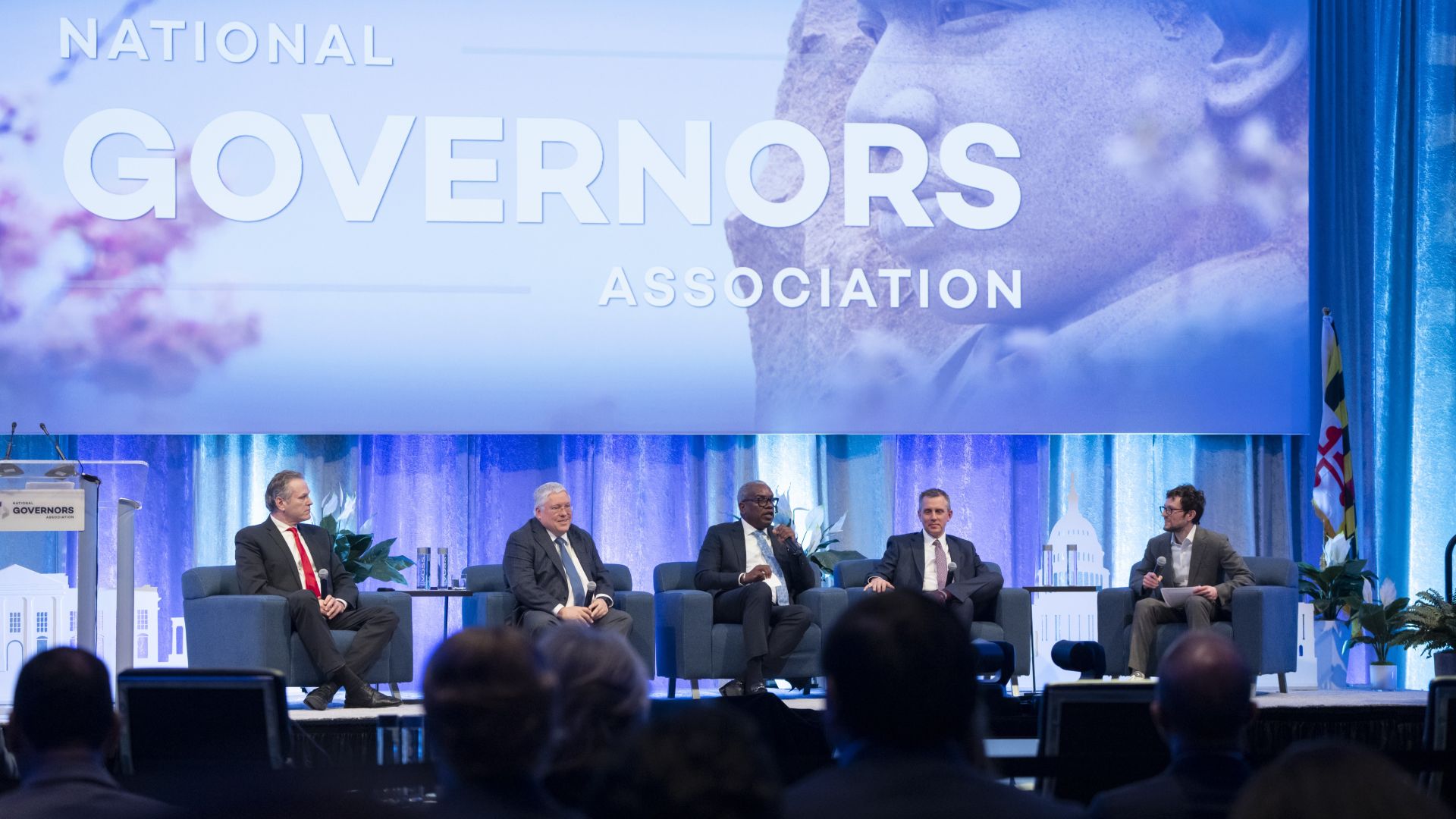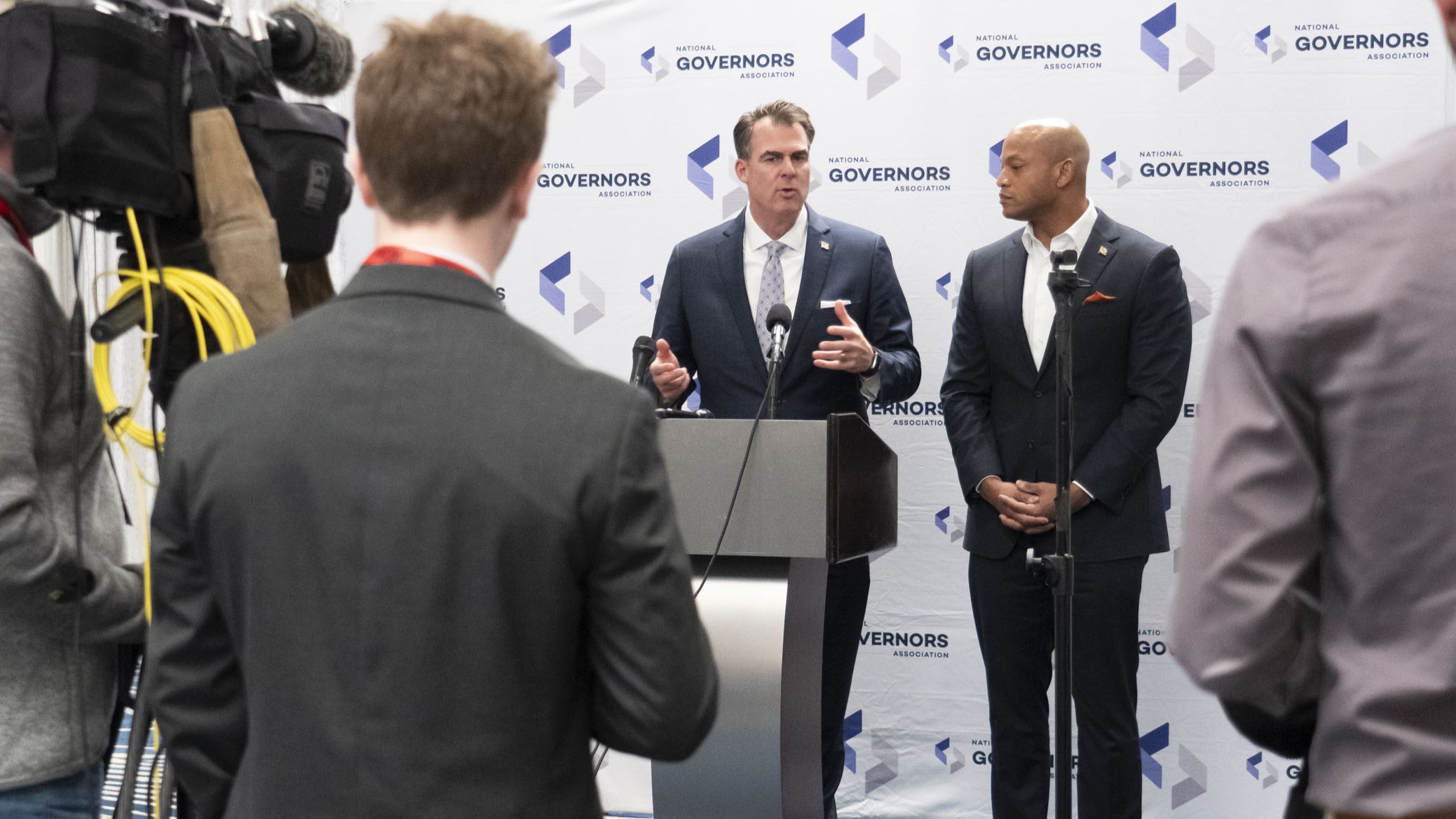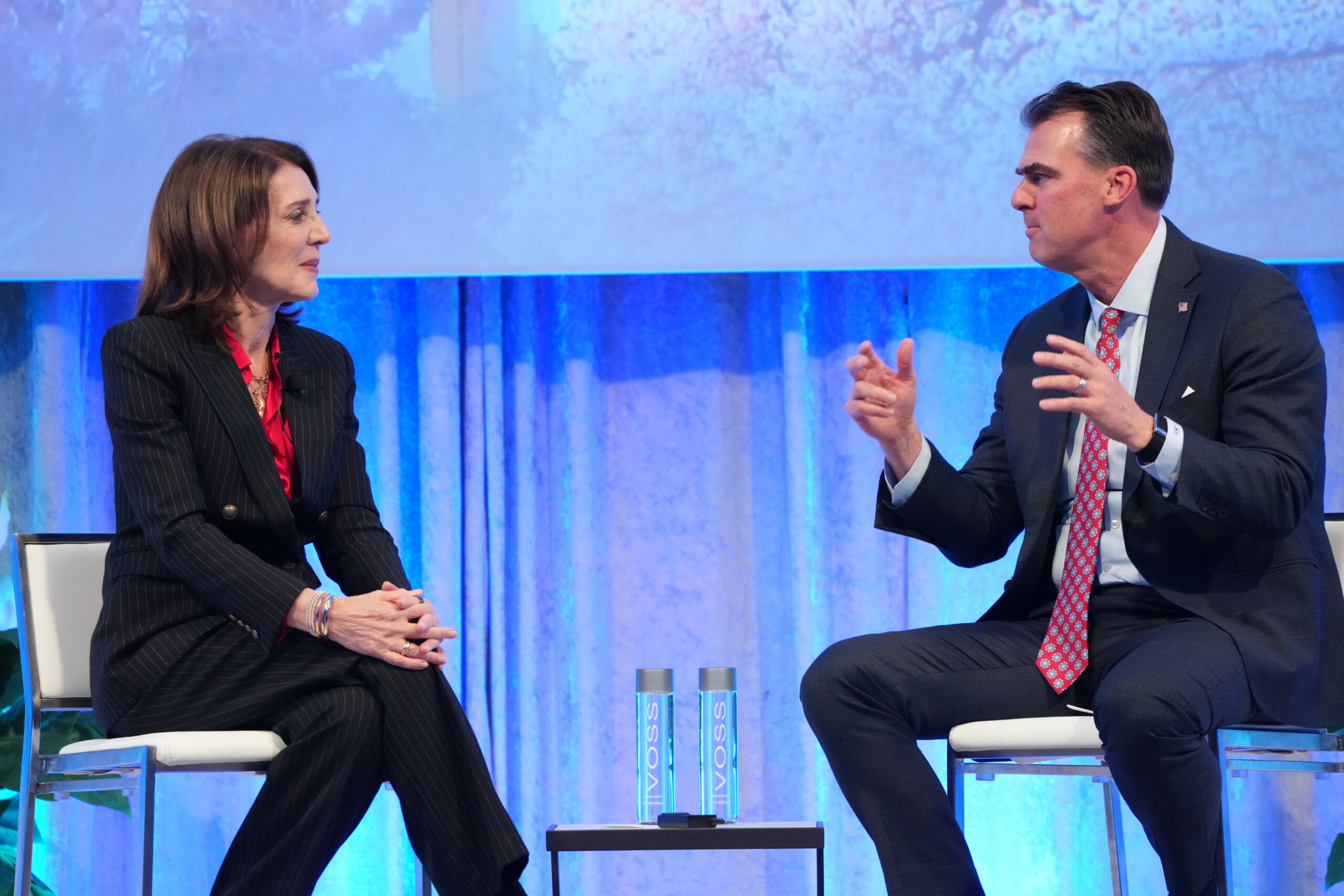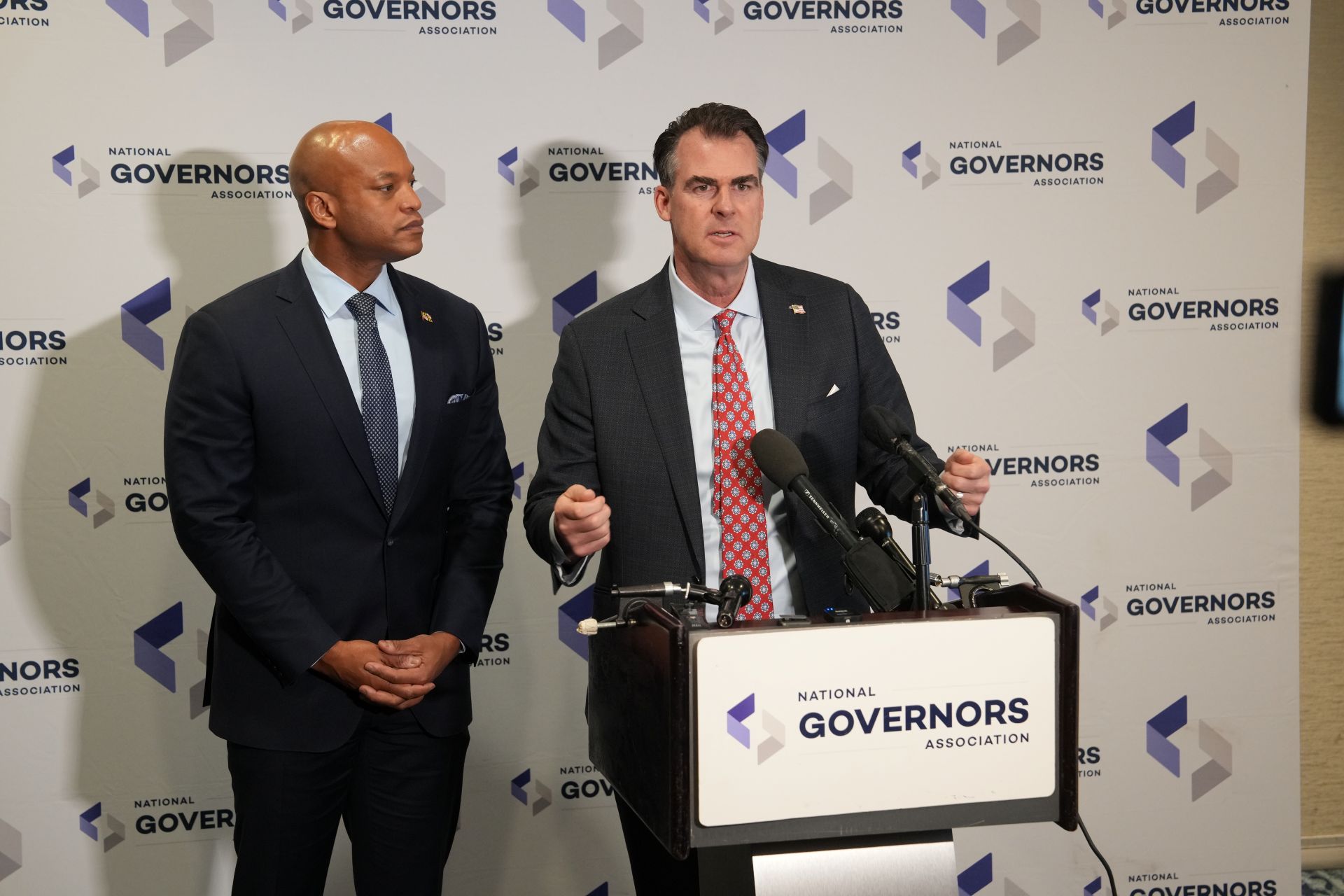The National Governors Association’s Infrastructure Coordinator Network comprises Governor-appointed Infrastructure Coordinators and Advisors from states and territories across the country. These advisors are responsible for implementing state and federal infrastructure programs and coordinating funding across state agencies. In some jurisdictions, Infrastructure Coordinators support local governments with funding infrastructure projects, and in others they also support state agencies and local governments with delivering projects on time and on budget. Most infrastructure coordinators sit within their Governor’s office, but there are several who are situated within state budget/finance departments or state departments of transportation.
The National Governors Association (NGA) supports Infrastructure Coordinators by hosting monthly network calls, distributing weekly newsletters, and providing technical assistance to states and territories as needed. NGA also supports the network by hosting various in-person meetings, including Infrastructure Coordinator Workshops. These Workshops are held two to three times a year in Washington D.C. and provide a forum for Infrastructure Coordinators to share challenges and best practices with each other, explore issues with private sector infrastructure and financing practitioners, and learn from and ask questions of federal officials on myriad infrastructure programs.
April 2025 Infrastructure Coordinator Workshop
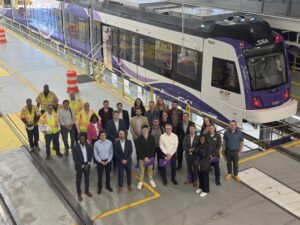
On April 28-30, 2025, NGA hosted its first Infrastructure Coordinator Workshop for the year—marking the ninth Infrastructure Coordinator convening since the inaugural meeting in March 2022. This meeting brought together almost 50 Governors’ Infrastructure Coordinators and Advisors from a bipartisan group of 26 states and territories. Infrastructure Coordinators were joined at the Workshop by officials from the new federal Administration, Congressional staff, infrastructure practitioners from NGA’s partner network, invited speakers and guests, and NGA staff.
Each Workshop that has been held to date has focused on a particular theme, including transportation, energy, and leveraging Inflation Reduction Act tax credits. The April 2025 workshop was no exception, with a focus on innovative approaches to funding and financing to deliver Governor’s infrastructure priorities.
Overview of Programming
The workshop commenced for Governors’ advisors the afternoon of Monday April 28th with a site visit to Maryland’s Purple Line Light Rail Project. This 16-mile transit line, which is currently under construction, will serve 21 new and existing station locations in Prince George’s and Montgomery counties just north of Washington D.C. During the site visit, state and territory officials toured the project’s operations and maintenance facility, viewed construction along the route, and had the opportunity to be one of the first groups allowed to board one of the Purple Line light rail vehicles. Attendees were briefed on the project and progress to date, and discussed in detail the public-private partnership between the Maryland Transit Administration and Purple Line Transit Partners, an entity created to finance, deliver and operate the project.
Programming resumed the morning of Tuesday April 29th with an informative discussion on federal transportation programs with Intergovernmental Affairs officials from the U.S. Department of Transportation. Infrastructure Coordinators had the opportunity to meet new officials at the Department, learn about U.S. Transportation Secretary Sean Duffy’s priorities, and ask questions regarding grant agreements and upcoming federal transportation funding opportunities. This session was followed by a dialogue on the upcoming reauthorization of surface transportation funding in the context of the expiration of the Infrastructure Investment and Jobs Act in September 2026. Infrastructure Coordinators discussed priorities with Congressional staff from both the majority and minority and heard from officials from the American Association of State Highway and Transportation on their approach to reauthorization.

That afternoon, Governors’ Infrastructure Coordinators were joined by private sector practitioners and speakers for roundtable discussions centered on the theme of innovative infrastructure funding and financing. The first discussion of the afternoon explored innovative ways for states and territories to leverage non-traditional federal funding programs to achieve Governors’ infrastructure goals, including Inflation Reduction Act tax credits using elective pay and federal opportunity zones provisions in the law. This was followed by a fireside chat with officials from USDOT’s Build America Bureau, which offers federal loans, grants and technical assistance to states and territories.
The focus of the agenda then shifted from federal programs to the exploration of state and territory options for funding and financing major infrastructure projects. Attendees had an opportunity to hear from practitioners on the use of municipal bonds and innovative state funding options that can support infrastructure priorities in the face of declining gas tax and other revenue sources. Another panel examined opportunities and best practices for states and territories to leverage private capital through innovative financing tools, such as asset concessions and public-private partnerships. This conversation emphasized the importance of educating lawmakers on these tools and highlighted the value of public-private partnerships in promoting innovation in infrastructure delivery.
The discussion then turned to the critical topic of infrastructure permitting, where an expert panel provided insights into state best practices in permitting reform to help deliver projects on time and on budget. Afternoon programming wrapped up with a discussion on the importance of tracking infrastructure funding flows and the status of specific projects.

On the morning of Wednesday April 30th, Governors’ Infrastructure Coordinators and Advisors reconvened for closed door facilitated roundtable discussions on a range of pertinent topics. This included a conversation on federal infrastructure funding trends, an exploration of specific infrastructure programs (including electric vehicle charging infrastructure and grid deployment programs), and a dialogue on approaches to managing and mitigating changes to federal program rules. The formal discussions wrapped up at lunch with an open discussion on how NGA can support Governors’ Infrastructure Coordinators going forward.
Key Takeaways from the Workshop
Governors’ Infrastructure Coordinators came away from the April 2025 Workshop with a better understanding of non-traditional funding and financing tools to support the delivery of infrastructure in their communities. This included non-traditional federal programs such as federal energy tax credits, innovative state funding and financing options, and public-private partnerships. State and territory attendees also left the convening with a better understanding of federal priorities under the new administration, and shared best practices in navigating funding opportunities. This sharing of best practices provided Infrastructure Coordinators with an expanded menu of policy options that can support the ongoing implementation of their Governor’s infrastructure priorities and broader economic and social objectives.
NGA would like to thank Governors’ Infrastructure Coordinators for making the time to travel to Washington DC and for all their terrific contributions and insights during the Workshop. NGA would also like to thank officials from the U.S. Department of Transportation and the U.S. Senate, as well as NGA Partners, for their involvement in the discussions and for helping make the event such a success. For more information on NGA’s Infrastructure Program, please see the program website here.

